African black soap is praised for a variety of potential skin benefits. It may assist with breakouts, uneven pigmentation, stretch marks, and more.
African black soap (often simply called African soap or black soap) has become a sought-after skincare staple — and it’s easy to see why.
Unlike the manufactured soaps from drugstores, genuine black soap is handcrafted in Africa from plant-based components.
Whenever possible, opt for fair-trade black soap. Each fair-trade purchase supports sustainable production and, in many cases, directly benefits local communities.
Still unsure? Keep reading to discover more about this beloved skincare product and how to incorporate it into your regimen.
:max_bytes(150000):strip_icc()/africanblacksoap-97f41eb210bc4eeaaece911d932bab90.png)
1. It’s antibacterial
Natural ingredients make African black soap a strong alternative to chemical-heavy cleansers.
Research suggests it may remove more bacteria than some synthetic cleansers. Despite its potency, black soap is mild enough to use on your:
- face
- hands
- body
2. It’s suitable for all skin types
If you have dry or sensitive skin, you probably avoid fragranced soaps and lotions. African black soap is naturally free of fragrances — just check that the product you buy is labeled “unscented.”
Those with oily or combination skin can also benefit. Black soap may help regulate your skin’s oil production without stripping essential oils or adding extra greasiness.
3. It’s hydrating
Shea butter is a key component in black soap. While shea can calm itchiness and relieve dry skin, cocoa and coconut oils contribute additional hydration.
4. It won’t leave your skin greasy
If you have combination skin, black soap simplifies picking the right cleanser. Shea adds moisture, while coconut oil may help moderate overly active oil glands.
5. It can soothe irritation
African black soap that contains shea butter can calm itchiness and irritation caused by:
- eczema
- contact dermatitis
- skin allergies
It may even help reduce rashes linked to eczema and psoriasis. To enhance these effects, look for a formula that includes oatmeal.
6. It’s anti-inflammatory
Black soap is abundant in vitamins A and E. These vitamins act as antioxidants, helping to neutralize free radicals and protect otherwise healthy skin tissues.
This can benefit people with inflammatory skin conditions like rosacea.
7. It may combat acne
Black soap may also assist in treating acne.
Besides helping balance natural oils, the soap’s shea content can support cell repair.
Its antimicrobial qualities may even help clear more severe acne breakouts.
8. It may slow visible signs of aging
Shea butter may help diminish some signs of aging, potentially plumping fine lines and wrinkles. The slightly coarse texture of the soap can also exfoliate dead skin that makes lines more apparent.
9. It can help protect against photoaging
Antioxidants in shea butter help shield skin from photoaging. Over time, sun exposure can produce age spots, but black soap may offer an added layer of defense.
10. It improves skin texture
African black soap is full of natural ingredients, and its texture contributes to its benefits.
When left minimally processed, the raw components in black soap leave it much less smooth than typical drugstore bars. This characteristic makes it a natural exfoliant, which can help refine skin texture.
11. It helps prevent razor burn and similar rashes
Exfoliation is important for maintaining smooth skin after:
- shaving
- waxing
- other hair-removal methods
Exfoliating removes dead skin cells before they clog hair follicles. The moisturizing qualities of African black soap may also reduce the bumps and irritation associated with razor burn.
12. It may fade dark spots
Hyperpigmentation often results from acne scarring and sun damage — issues that African black soap may help prevent or calm.
13. It can remove makeup effectively
African black soap offers a deeper cleanse thanks to its exfoliating nature. This may help ensure all makeup is removed from your skin while providing hydration after cleansing.
How to use African black soap
Authentic, unprocessed African black soap has a coarse texture. While this natural roughness is ideal for sloughing off dead skin, you’ll want to soften it before using it as a daily cleanser.
Simply break off a small piece and rub it between your palms to create a lather. If you prefer a liquid cleanser, dissolve a chunk of soap in water beforehand.
You can apply the bar directly to your skin for exfoliation, but be gentle!
The grainy texture provides exfoliation on its own, so vigorous scrubbing isn’t necessary. You might also rub the bar on a soft washcloth first for milder cleansing or for use on irritated areas.
Whichever approach you choose, rinse thoroughly with lukewarm water after use.
Then, apply your favorite moisturizer to damp skin to help seal in the soap’s natural hydrating effects.
Potential side effects and risks
Although African black soap can be effective for many skin types, correct usage is crucial to avoid unwanted side effects.
Some people find black soap drying. You can reduce this risk by adding a teaspoon of raw honey to your soap mixture.
If you’re new to raw black soap, start by using it once every few days. Gradually increase frequency as your skin adjusts.
Allergic reactions are possible with any soap. If your skin becomes irritated or develops a rash, stop using the product.
Because natural black soap is abrasive, it can irritate or even break the skin if used roughly. Stinging and burning sensations are also possible.
When using a raw soap block, move it gently in circular motions across your skin.
The best way to avoid skin damage is to soften the soap with water, rub it between your hands, or use it with a washcloth.
The bottom line
African black soap is rich in nutrients that can enhance your skin’s natural complexion and support a healthy glow. For best results, gradually work up to using the soap morning and night.
If you notice persistent rashes or irritation, stop use and consult a physician or dermatologist.
They can identify the cause of your symptoms and advise whether you should permanently discontinue black soap.

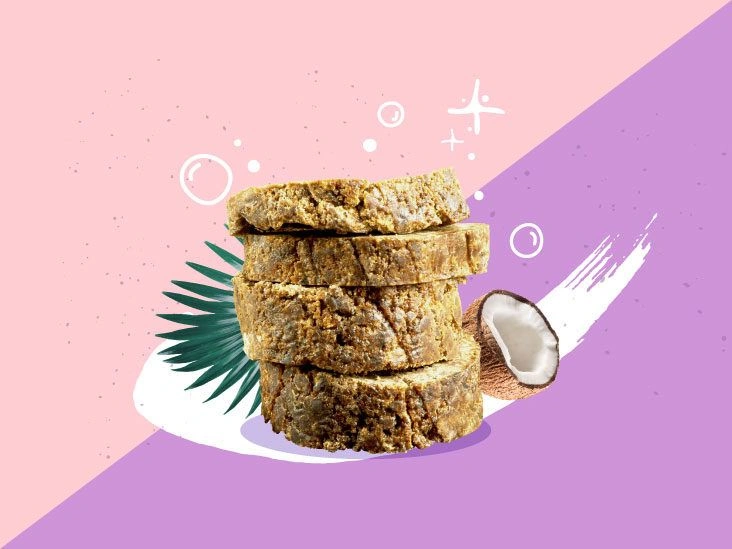
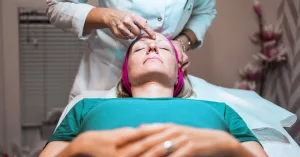
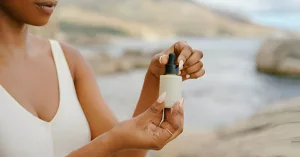

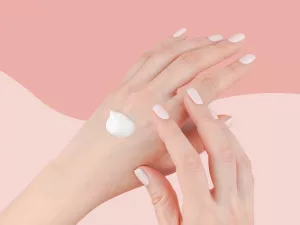
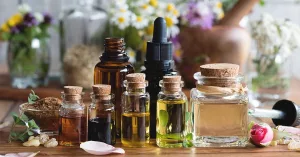
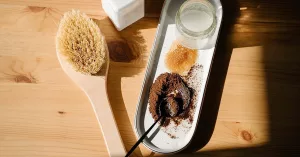

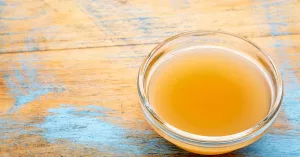

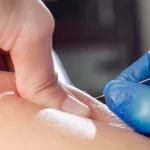

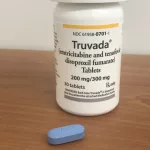



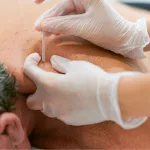







Leave a Reply
You must be logged in to post a comment.